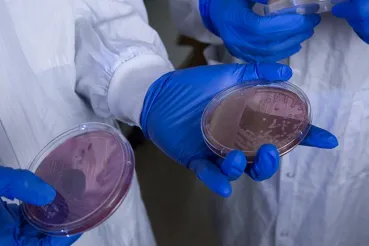RUSH University System for Health participated in a White House roundtable discussion on health sector actions to tackle climate change on Thursday, June 30. RUSH accepted the U.S. Department of Health and Human Services’ challenge and signed a pledge to reduce greenhouse gas emissions and build climate considerations into the future of health care — a commitment that aligns with RUSH’s strategy of building healthier communities.
“The conditions in which people are born, live and work determine their health far more than biology or behavior,” said Dr. Omar Lateef, president and CEO of RUSH. “And just as the COVID pandemic illustrated how communities like those on Chicago’s West Side are disproportionately impacted by this preventable illness, we know that the health impacts of climate change are not equally distributed across our country.”
“By signing this pledge, we are aligning our work with the climate goals the White House has set and accelerating our efforts to dismantle the barriers that stand between everyone having an equal opportunity to be as healthy as possible,” he added.
The HHS, in partnership with the White House, issued a call to action in April 2022 to tackle the climate crisis through an initiative aimed at reducing emissions across the health care sector. Federal health systems have taken action to reduce emissions and this new initiative challenges private health systems to match or exceed these goals.
Lateef signed the HHS pledge on June 1, 2022. RUSH has committed to the following:
- At a minimum, reduce emissions by 50% by 2030 and to net zero by 2050
- Complete an inventory of supply chain emissions
- Develop climate resilience plans for facilities and communities
Angelique Richard, PhD, RN, CENP, senior vice president of hospital operations and chief nursing officer for RUSH and RUSH University Medical Center, represented RUSH at the White House roundtable. The event was led by National Climate Advisor Gina McCarthy, who was joined by Secretary of Health and Human Services Xavier Becerra, Secretary of Veterans Affairs Denis McDonough and other senior administration officials.
“RUSH is honored to sign this pledge and is proud to be recognized as a national leader working with community leaders and residents to build healthier communities,” Richard said. “We embrace this challenge to take the bold actions national leaders have called for and demonstrate how work done at the neighborhood level can have global impact.”
How RUSH plans to meet the HHS Pledge
“Our environmental sustainability work is most certainly aligned with improving individual and community health, both now and in the future,” says Ian Hughes, sustainability manager at RUSH. “The health care sector is responsible for 8.5% of total U.S. carbon emissions. We have a big role to play.”
Here’s how RUSH is approaching this effort:
- The RUSH goal is to achieve 100% renewable electricity by 2030, which will cut our Scope 1 and 2 emissions by at least 60%. To reach net zero emissions by 2050, RUSH will continue to reduce greenhouse gas emissions internally through strategies that include energy efficiency projects, fleet electrification, waste reduction and supply chain collaborations to reduce emissions associated from items Rush purchases.
- An inventory of supply chain emissions is set for completion in 2023.
- Climate change disproportionately impacts marginalized communities and is a direct contributor to the wage and life expectancy gaps in the communities RUSH serves. RUSH actively addresses these social determinants of health and is examining the effect of its emissions on our communities. RUSH is working with Practice Greenhealth to build bridges within the organization to support this initiative and grow our collective impact.
The HHS pledge aligns with the work already being undertaken by RUSH’s Environmental Sustainability Team, which was created in 2020. The team is made up of key facilities leaders who collaborate with student- and staff-led working groups to reduce the health system’s environmental footprint. The team’s five top objectives are:
- Mitigating the effects of climate change.
- Reducing waste.
- Improving efficient utility consumption.
- Embedding sustainability into supply chain and procurement processes.
- Engaging and educating staff, students and visitors.
RUSH builds green
RUSH University Medical Center’s Tower earned LEED Gold certification in 2014 from the U.S. Green Building Council and verified by the Green Building Certification Institute. It was the largest new construction health care project in the world to be LEED Gold certified and was the first full-service green hospital in Chicago.
The Orthopedic Building at RUSH earned LEED Gold certification in 2010, and RUSH Oak Brook received LEED Gold certification in 2019.
Building to these standards reduces our contributions to climate change from construction through the lifespan of the building.




